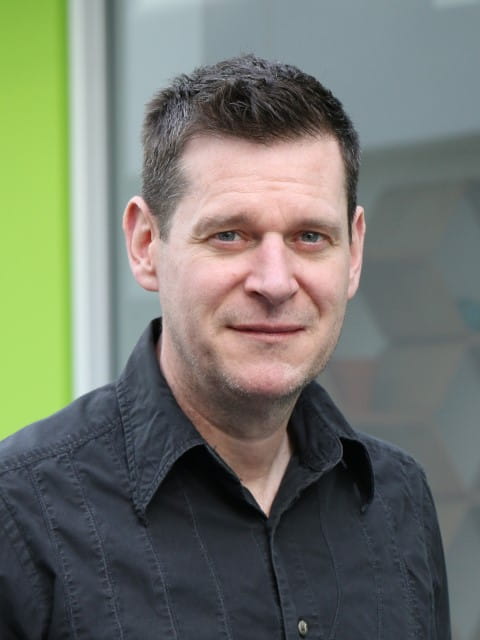Luke is a BPS and HCPC chartered Sport and Exercise Psychologist who graduated in Physiology and Sport Sciences at the University of Glasgow (1996) where he also went on to complete his MPhil in Psychology (1998). His PhD was in Sport and Exercise Psychology at the University of Birmingham (2007) where he investigated the influence of motivation on moral functioning and affective responses in sport. Between degrees, Luke spent time coaching sport and teaching in primary, secondary, and higher education institutions in England, Italy, and Romania. He lectured at South Bank University and the University of Birmingham before going on to become an Assistant Professor at Coventry University where he was programme lead on the BSc in Sport and Exercise Psychology (2007-2023). Luke then moved to Loughborough (2023) where he is a University Teacher in the School of Sport, Exercise and Health Sciences.
Luke began his research in sport psychology by focusing on the influence of motivation on moral functioning. He then continued his research in motivation with a move towards triangulating motivational theory with more objective measures of cognitive functioning (e.g., attention, memory, problem solving, and creativity), psychophysiological indices (i.e., EEG and brain asymmetry), and measures of affective states such as hedonic and eudemonic well-being. Experimental designs have been a feature of his recent research. Overall, Luke’s interests lie in positive psychophysiological approaches to optimising human development, functioning, and enjoyment in educational and sporting settings. He is also interested in the influence of reciprocity on moral functioning and the area of mindfulness.
- BPS chartered and HCPC registered.
- Fellow of the Higher Education Academy.
- As well as being chairman of a grass roots football club, Lukehas links with elite academy and European football teams.
- Junior cricket coach.
- Collaborative Online International Learning (COIL) programmes with State University New York.
Featured publications
- Allen, L., Sage, L., Sparkes, E., & Turner, A. (2022). A longitudinal pilot study of prefrontal hemispheric α-asymmetry at pre, post and 6-months following an 8-week Mindfulness and Compassion Course, European Journal of Applied Positive Psychology, 6, 9, 1-11. https://www.nationalwellbeingservice.org/volumes/volume-6-2022/volume-6-article-9/
- Allen, L., Sparkes, E., Lawrence, T., Sage, L., & Turner, A. (2021). ‘Exploring fears of compassion and stress during a mindfulness and compassion intervention.’ European Journal of Applied Positive Psychology,5(11), 1-11 https://www.nationalwellbeingservice.org/volumes/volume-5-2021/volume-5-article-11/.
- Allen, L., Sparkes, L., Sage, L., Percy, C., Turner, A., Lawrence, A. (2020). An Interpretative Phenomenological Study Exploring the Lived Experiences of Participation of a Mindfulness and Compassion Course. Transpersonal Psychology Review, 23(2) 22-40
- Mulvenna, M., Adie, J., Sage, L., Wilson, N., & Howat, D. (2020) Approach-Achievement Goals and Motivational Context on Psycho-Physiological Functioning and Performance among Novice Basketball Players. Psychology of Sport and Exercise, 51, 101704.
- Krastev, I., & Sage, L. (under review). Brain Asymmetry and Mediating Effects of Achievement Goals as Predictors of Hedonic and Eudaimonic Well-Being.
- Sage, L.& Stanley, D. M., (under review). The effects of achievement goals and competence on attention.
- Sage, L., Stanley, D., & Krastev, I. (under review). The effects of classroom motivation, competence, sex, and level of education on attention.
- Sage, L.(2017). ‘Motivated attention in the multicultural classroom’ In Paradoxes in Education: Learning in a Plural Society, R. Sage (Ed.)69-84, Sense Publishers, Rotterdam NL.
- Sage, L.(2014). Why motivation? An Achievement Goal perspective to research and teaching.’ Education Today, 64(3), 31-35
- Sage, L., & Kavussanu, M. (2010). Moral identity and social goals predicteudaimonic well-being in football. Psychology of Sport and Exercise, 11(6), 461-466
- Sage, L., & Kavussanu, M. (2008).Goal orientations, motivational climate and moral behaviour in youth soccer: Exploring theirtemporal stability and reciprocal relationships.Journal of Sports Sciences, 26(7), 717-732.
- Sage, L., & Kavussanu, M. (2007). The effects of goal involvement on moral behavior in an experimentally manipulated competitive setting.Journal of Sport & Exercise Psychology, 29(2),190-207.
- Sage, L., & Kavussanu, M. (2007). Multiple goal orientations as predictors of moral behaviour in youth soccer players. The Sport Psychologist, 21(4), 417-437.
- Sage, L., Kavussanu, M., & Duda, J. L. (2006). Goal orientations and moral identity as predictors of prosocial and antisocial functioning in male association football players. Journal of Sports Sciences, 24(5), 455-466.
- Chatzisarantis, N., Hagger, M., Smith, B. M., & Sage, L. D. (2006). The influences of intrinsic motivation on execution of social behaviour within the theory of planned behaviour. European Journal of Social Psychology, 36, 229-237.
